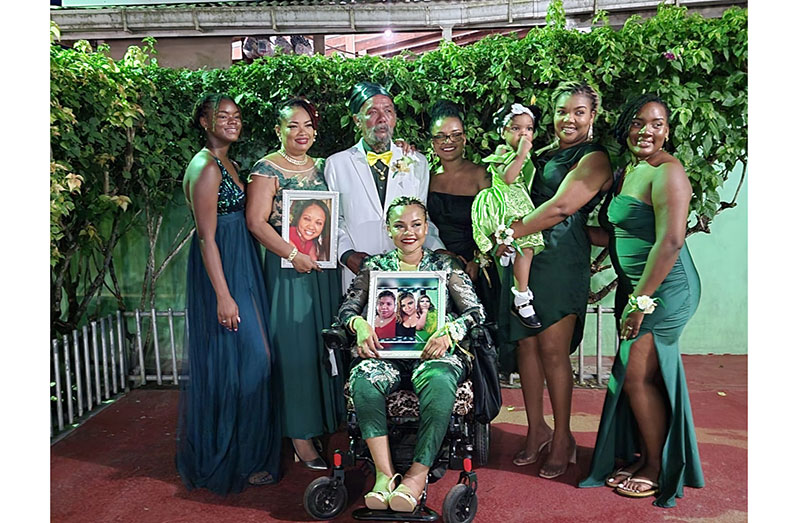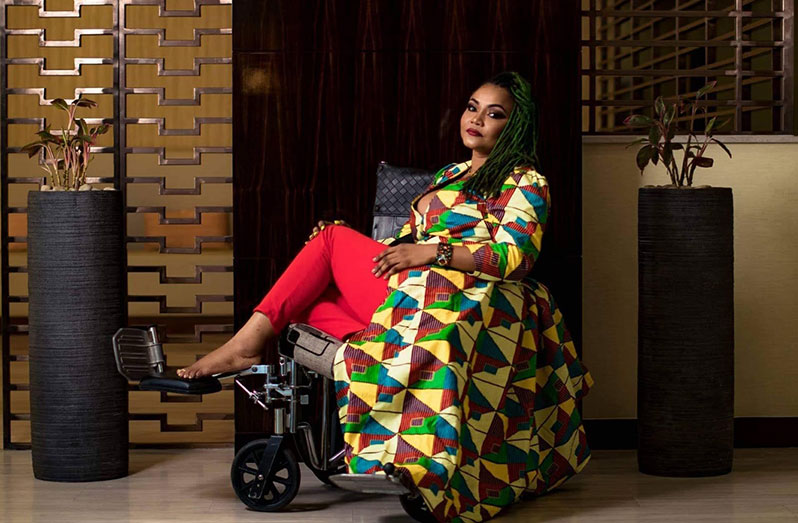GUYANA’S first loc fest, an event aimed at celebrating Rastafarian culture is being held today in Linden, Region 10.
Pioneered by local loctician, 35-year-old Setra Oselmo, the event will feature several local vendors, creatives and artistes from the Rastafarian community and will see a host of panel discussions and fanfare activities.
“The event was birthed out of things that I have been looking around for quite some time that disturb me and, not only that, I wanted to be a part of something that I feel expresses who I am,” Oselmo told the Sunday Chronicle.
Being a Rastafarian herself, Oselmo noted that while the community and religion are well known across Guyana, it’s not one that is celebrated or often respected.

“It’s a dream of mine that one day I can see a whole space of people with locs embracing our culture, our people, who we are, our lifestyle and be respected by that.”
While some may see ‘locs’ as a simple hairstyle or fashion trend, ‘locs’ she explained is a symbol of spirituality.
Through knotting, twisting, and tying the hair, many believed that they could preserve more energy in the body which would lead to greater amounts of physical and spiritual strength. And Rastafarianism is most notably recognised for pursuing this.
DISCRIMINATION
In western society, however, the religion has faced discrimination because of the hair and other beliefs.
“We face a lot of challenges being Rastafarians growing up, being accepted into schools [and] being accepted into work. It’s a joy for me to see kids with locs going into schools without having an issue, without persons telling them they have to cut their hair even with some jobs.”
She reiterated the importance of having such an event that builds public awareness and breaks down the perceived thoughts of what Rastafarianism is.
Reflecting on her own personal experience, Oselmo recalled her earlier school days, when herself and siblings were constantly penalised for their appearance.
“My siblings and I, there are eight of us, we have been through it getting into schools, getting into jobs. My family we loved to take trips and whenever the police saw a bus load of Rastafarians, it was a search from A-Z.”
Guyana has come a long way in building awareness, and while discrimination against Rastafarians is not as prevalent as it once was, it is a conversation she believes must continue.
“I am happy now that we are opening our eyes and embracing who we want to be and our identity and that should be respected.”

IT’S NOT ‘DREADLOCS’
‘Locs’ to Rastafarians is much more than just a hairstyle. It represents a connection to Africa and a rejection of western societal norms. It’s a renewed sense of pride in African physical characteristics and Blackness, which ties in with their belief about keeping things natural.
“In Rastafarian culture, we honour you the way we see you as kings and queens.”
According to Oselmo, there are many types of ‘locs’ and it’s not only limited to the African or the Rastafarian culture but not many are aware of this due to cultural brainwashing.
“In our culture we don’t say ‘dreads’ because there is nothing dreadful about our locs, it either ‘natty’ or ‘locs’, there is nothing dreadful about what we wear, no matter how long, how short, what type, that’s who we are and we embrace that.
“It’s the western society that gave it that name and without the knowledge we didn’t know it was something that we were implicating on ourselves. If we call it dread locs, that’s all people see the dreadful site of us and we don’t want that.”
Interlocked hair she says goes beyond Rastafarianism, its lifestyle that is natural, healthy and mentally conscious.



.jpg)








